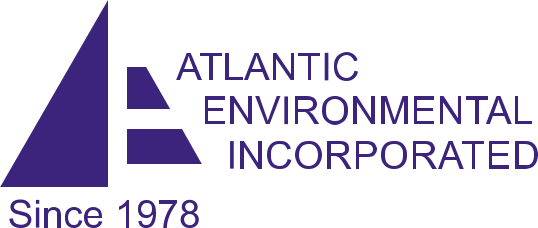If you need Expert Witness in asbestos litigation assistance as discussed in this article, call us at 973-366-4660 or email us at info@atlenv.com.
Written By: Robert E. Sheriff, MS, CIH, CSP, President, Atlantic Environmental, Inc.
January 31, 2020
Industrial Hygienist’s Role in Asbestos
Whether the Industrial Hygienist represents the plaintiff or a defendant, there are areas when they can add valuable information as an expert witness, or in litigation support, to strengthen the attorney’s ability to present the best possible position of those that they represent.
The Industrial Hygienist may have developed their knowledge sufficient to act as an expert witness through education (BS, MS, and Ph.D.) and experience as a researcher, regulatory agent (EPA, OSHA, NIOSH, WHO, etc.) or as an independent consultant.
Where can an Industrial Hygienist aid the attorney—and client—in presenting the best possible position—regardless of whether they are aiding an attorney representing the plaintiff or defendant? The first step is to request available documents available in the case:
- The Complaint,

- The medical information on the affected plaintiff,
- Depositions of the plaintiff,
- Depositions of co-workers, managers, defendant’s experts,
- Interrogatories of the plaintiff,
- Detailed work history or exposure history of the plaintiff,
- Details of the industry/industries where exposure potential was alleged,
- Family members with knowledge of the lifestyle, medical history and non-occupational activities that could have contributed to the asbestos-related disease.
From this information, the Industrial Hygienist can assemble an exposure history that addresses the locations/activities that may have contributed to the asbestos-related disease. A number of questions need to be answered in assisting the attorney in presenting their case:
- What exposures are the plaintiff alleging as the causes or contributing factors in the asbestos disease?
- Is the disease one that is known to be the result of asbestos exposure (mesothelioma, lung cancer, etc.)?
This aspect of the investigation is commonly referred to as Toxicology. Is Toxicology something that is in the sphere of knowledge of an Industrial Hygienist? The answer is yes. Toxicology addresses whether the disease is known to be the cause of that disease. This is well within the rubrics of knowledge of an Industrial Hygienist. Most, if not all, IH programs include a Toxicology course work as part of the curriculum.
Is the level of exposure to a substance (asbestos) sufficient in quantity and duration of the activity that has caused or contributed to the disease? This is the field of Epidemiology. Again, is this in the realm of knowledge of the Industrial Hygienist? The answer is yes. Again, most if all, industrial hygiene programs, include specific education in Epidemiology—and a major part of a professional IH’s work involves determining whether a particular exposure could cause—or contribute to—the asbestos-related disease.
Believe me, this is a complex task. With the broad range of situations and agents that may have contained asbestos, was the exposure to a particular item (piping insulation, brake shoes, fireproofing) or even the particular product (Johns Manville piping insulation, W.R. Grace vermiculite), sufficient exposure in time and intensity to be a cause or contributing factor in the asbestos disease? The ideal situation is when the Industrial Hygienist has sufficient information to develop a dose reconstruction. Often, however, there is not sufficient information available to develop a quantitative dose.
Factors other than asbestos must also be addressed such as smoking history since smoking can be a contributing—often major—factor in lung cancer by itself. At the same time, it is well known that asbestos exposure in conjunction with smoking can greatly increase the risk of causing lung cancer.
The Toxicology and Epidemiology of asbestos disease get even more complex when considering the type of asbestos to which an individual is exposed.
Crocidolite asbestos appears to be the most virulent form of asbestos-related to disease. The other common amphibole form of asbestos is Amosite but less virulent than Crocidolite. Finally, the most common form of asbestos used in products is Chrysotile—a serpentine form of asbestos that appears to be less virulent than Amosite or Crocidolite. Some offer the opinion that chrysotile doesn’t cause asbestos disease, but contaminants in the Chrysotile caused the disease. The jury is still out on that subject—there is not sufficient evidence to completely rule out Chrysotile asbestos as a cancer-causing substance, and also not enough information to conclude it does cause cancer.
That’s not all the Industrial Hygienists must consider. The diagnosis of mesothelioma, or lung cancer, or any other asbestos implicated disease exists even where there is no identifiable source of exposure. Such cases are referred to as idiopathic causation. For each type of cancer associated with asbestos, there is an idiopathic level of disease—from other causes or sources—whether due to exposure of heredity, environment,—or totally unknown cause.
Such other causes such as radiation and Simian Virus 40 are examples.
The fundamental role of an Industrial Hygienist in litigation involving an asbestos-related disease is whether an asbestos exposure could have “increased the risk of causing or contributing that disease.”
The final question is whether the Industrial Hygienist has the education, experience, and expertise under the Daubert rules for evidence to act as a qualified expert on the subject of asbestos and asbestos exposure. That can only be addressed on a case-by-case basis.
This treatise could go on for volumes to cover all the aspects of asbestos, asbestos exposure, and asbestos disease. This is just a brief summary of the role of an Industrial Hygienist can play in assisting attorneys in presenting their client’s case.
For more information contact Atlantic Environmental.
Our primary service areas are: NJ, NY, NYC, PA, CT, DE, (Boston) MA, RI, Wash DC, WI, MD, MI, (Chicago) IL, VA, IN, (Atlanta) GA, AL, NC, SC, TN, (Dallas, Ft Worth) TX, OK, DC, AR. We can service most other areas of the U.S. but with some added travel charges.



